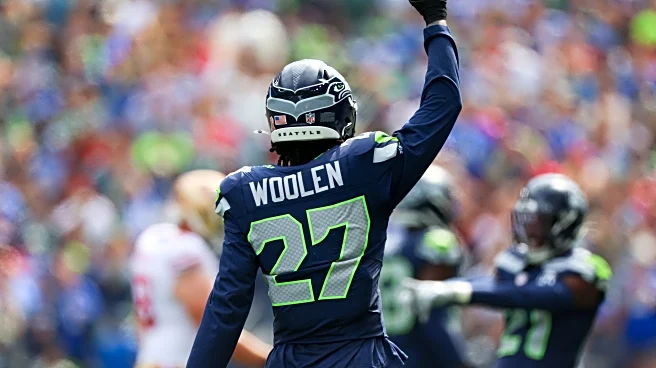What's Happening?
A Ford salesman from Long-Lewis Auto Group in Alabama has revealed how some dealerships allegedly incorporate hidden fees into customers' final bills. In a TikTok video, the salesman, known as @geebo4, compared the pricing of two 2025 Ford Explorers—one sold by a competitor and the other by his own dealership. The competitor's vehicle included additional charges such as a $699 'doc fee' and a $190.98 electronic filing fee, raising the final cost to $48,166.82. In contrast, the Long-Lewis dealership's Explorer, despite having a higher market value, ended up costing less due to the absence of these fees. The video has sparked discussions among viewers, with some expressing skepticism about dealership pricing models, while others appreciated the transparency.
Why It's Important?
The revelation of hidden fees in car sales highlights a significant issue in the automotive industry, affecting consumer trust and financial transparency. These fees, often not government-mandated, can substantially increase the final cost of a vehicle, impacting buyers' budgets and purchasing decisions. The exposure of such practices encourages consumers to demand clearer breakdowns of costs and fosters a more informed approach to car buying. It also pressures dealerships to reconsider their pricing strategies and potentially adopt more transparent practices, benefiting both the industry and consumers.
What's Next?
As awareness of hidden fees grows, consumers may increasingly scrutinize dealership pricing and demand more transparency. This could lead to changes in industry standards, with dealerships possibly reducing or eliminating such fees to maintain competitiveness. Additionally, regulatory bodies might consider implementing stricter guidelines to protect consumers from deceptive pricing practices. The ongoing dialogue between consumers and dealerships could drive a shift towards more ethical sales practices in the automotive sector.
Beyond the Headlines
The exposure of hidden fees in car sales raises ethical questions about dealership practices and consumer rights. It underscores the importance of transparency in financial transactions and the need for consumers to be vigilant about potential markups. This development may also influence cultural attitudes towards car buying, encouraging a more proactive and informed approach among consumers. Long-term, it could lead to a shift in industry norms, prioritizing customer trust and satisfaction.









